Canada experienced a boom in temporary migrants over recent years, which helped drive up rental inflation to astonishing levels.
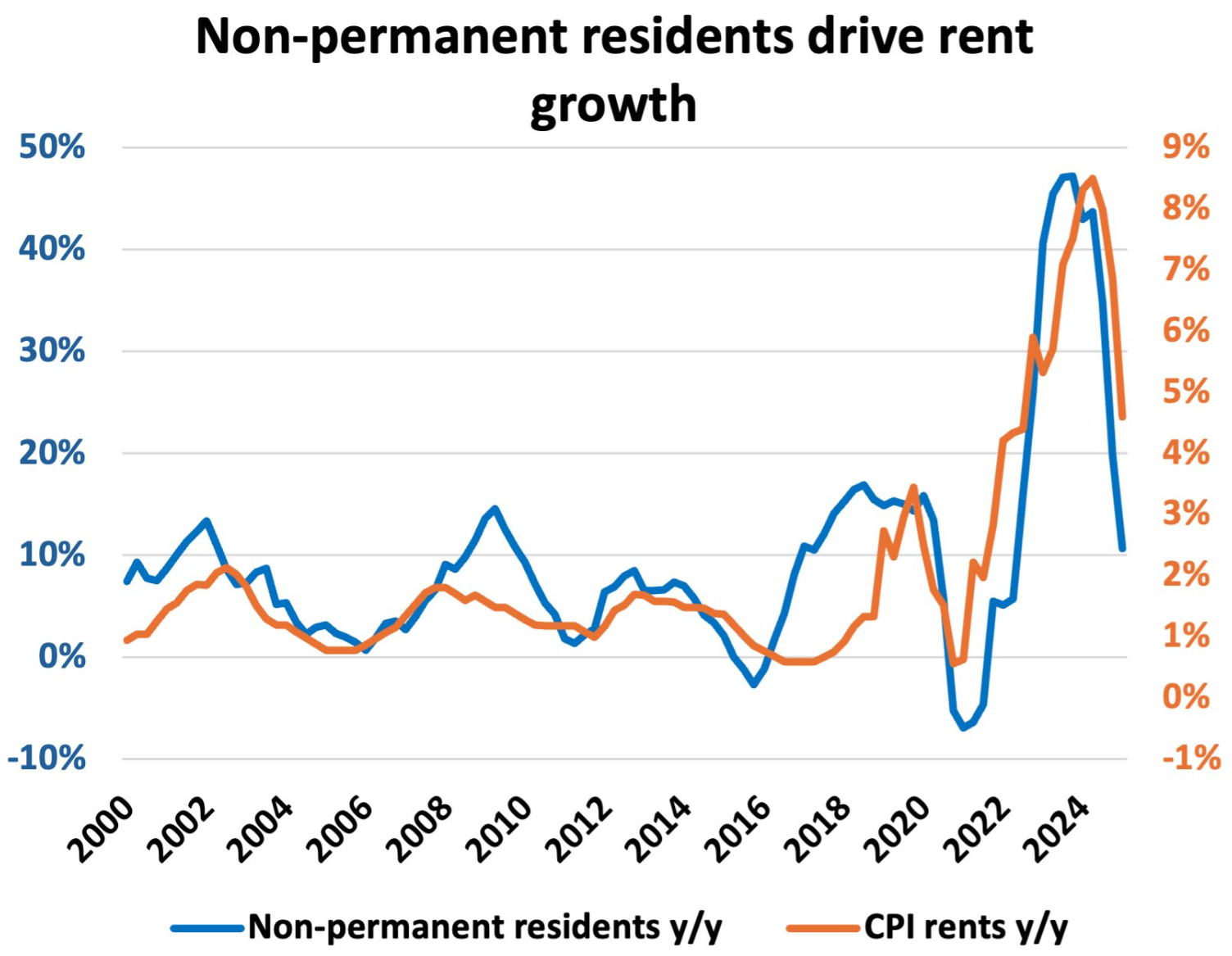
Source: Ben Rabidoux
As a result, temporary migrants hit a record 7% share of Canada’s population in mid-2024, which the government has promised to reduce to 5% by the end of 2027.
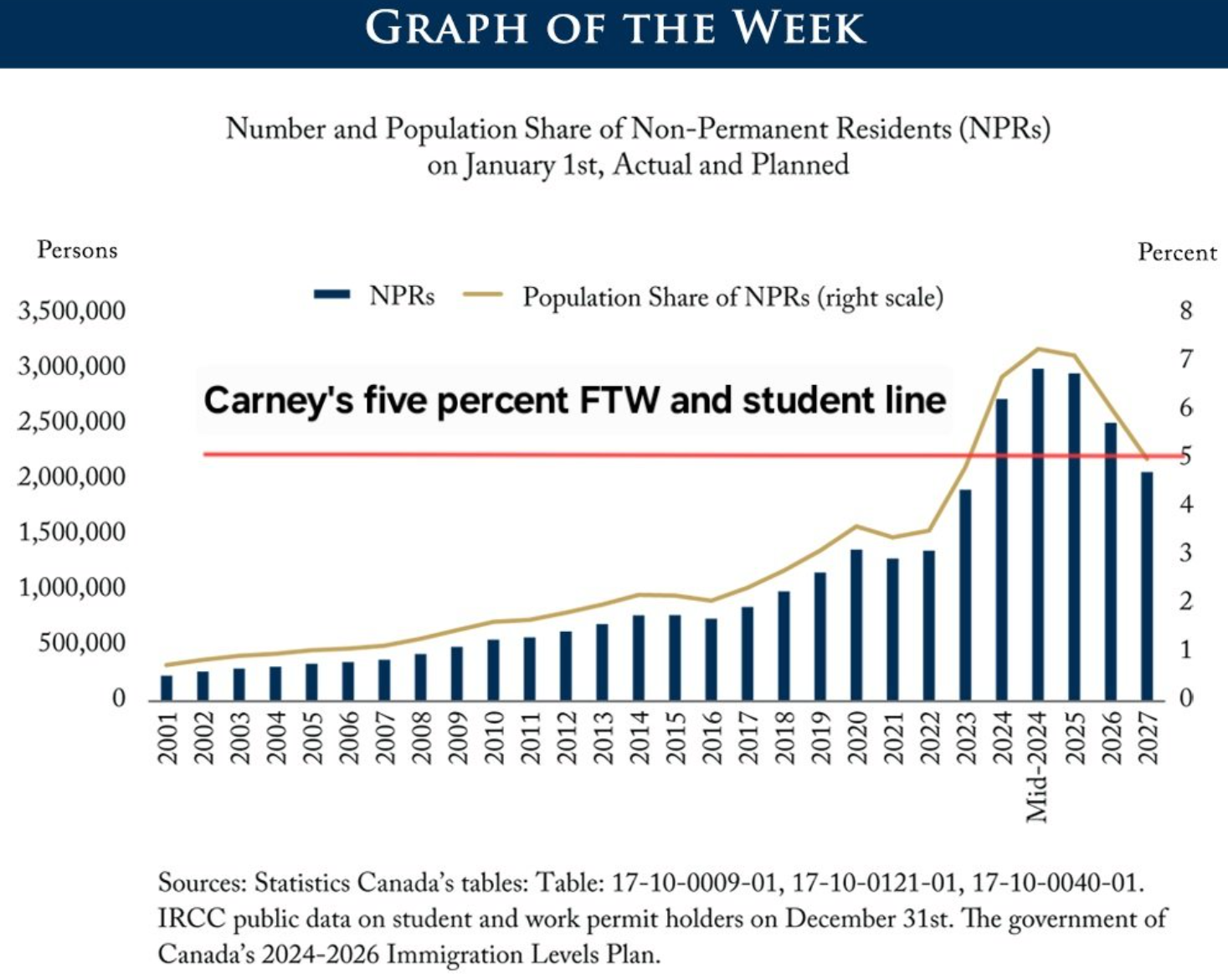
Now spare a thought for Australia, whose stock of temporary migrants relative to the population dwarfs Canada’s.
New data released by the Department of Home Affairs shows that there were a record 2,460,000 temporary visas (excluding visitors) residing in Australia as Q2 2025:
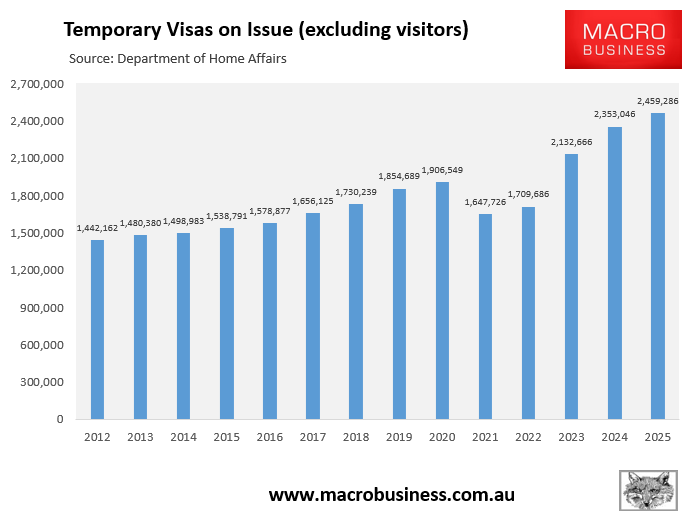
This was around 605,000 higher than the pre-pandemic level in Q2 2019 and 920,000 higher than a decade ago.
As illustrated in the following chart, temporary visas as a share of Australia’s population rose to a record high of 9%, up from 7% before the pandemic and 6% a decade ago:
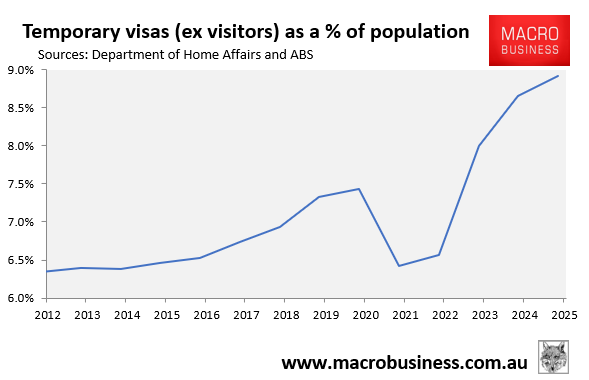
Bridging visas (+189,700), graduate visas (+137,100), and skilled employment visas (+117,000) have driven the surge in temporary visa holders since the pandemic.
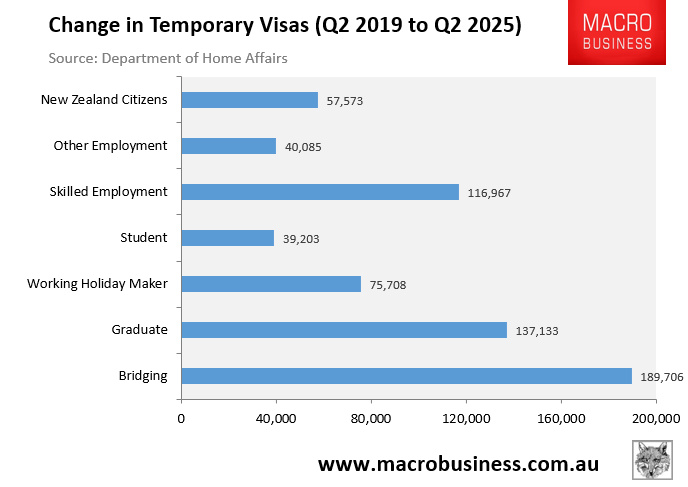
The following chart plots the change in visas related to international students—i.e., student visas (592,300), graduate visas (228,900), and bridging visas (369,600)—which are each tracking at or near record levels:
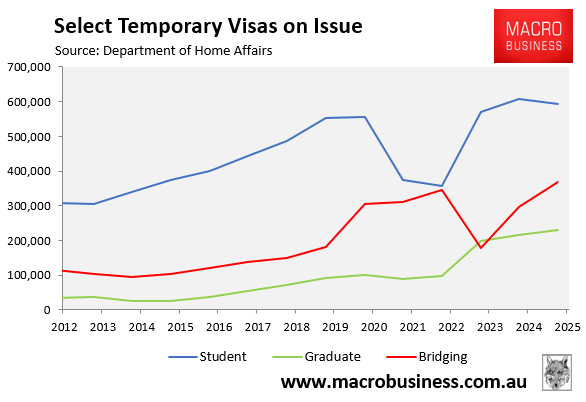
If the Canadian government considers the proportion of temporary migrants at 7% to be excessive and seeks a reduction to 5%, what does it say about Australia’s immigration system?
Australia’s 9% share of temporary migrants is far too high and a reduction to 5%—the same as Canada’s target—would require the number of temporary migrants in Australia to be slashed by around one million, from 2.4 million to 1.4 million.
Sadly, the ‘Big Australia’ loving Labor government and growth lobbyists would never support such a reduction.

